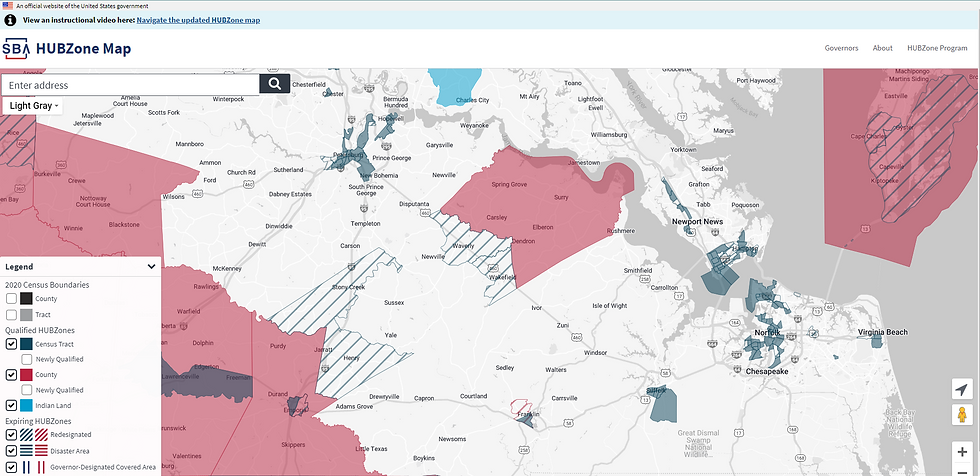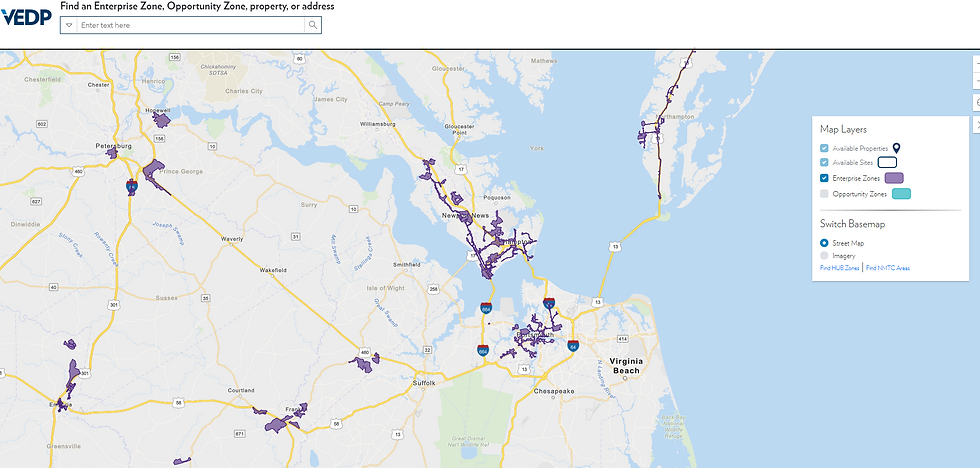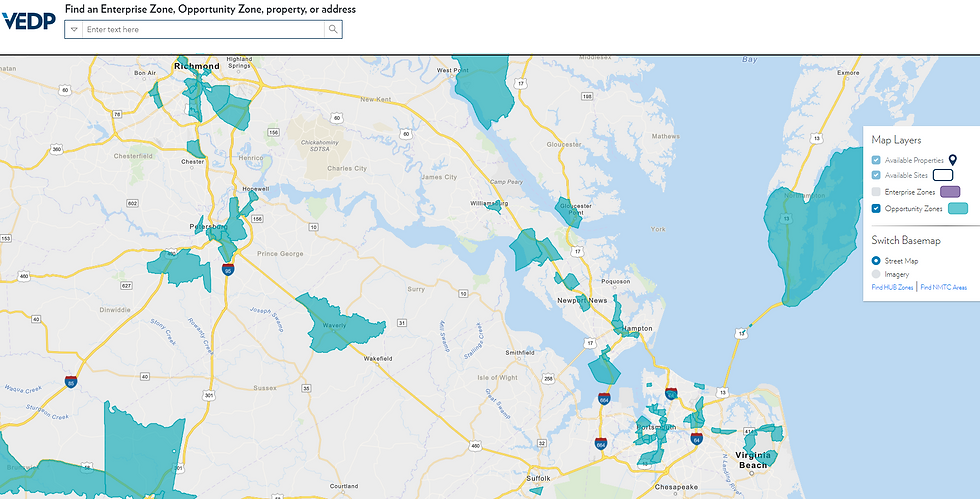Commercial Real Estate Purchases & Sales
- Adam Garrett
- Mar 21, 2024
- 4 min read
Updated: Jul 23, 2025

Norfolk: Image by Adam
The sale & purchase of commercial property is similar, but has some distinct differences & unique opportunities vs residential purchases.
Different Locations to List/Find Properties (USA): Start with Loopnet, Officespace.com, & MLS, but Don't Stop There.
With commercial property, you typically are talking about a different multiple listing service than with residential in the SE VA area. Also, the top source of commercial sales is centralized, with 1 option throughout the US, unlike the multiple listing service.
Image courtesy National Association of Realtors
However, unlike MLS for residential sales, there is a higher % of properties that are listed elsewhere for sale.
The top location to go to find commercial properties in Hampton Roads has become Officespace.com & the next best location is Loopnet. MLS is also important to a lesser degree. That said, the more places you set up searches on, the more places you'll find properties.
There are a number of additional possibilities, but some are specific to the region, so often if you look at sources online, they won't mention the regions where the source is prevalent. Here is a list of additional locations, including which ones didn't have any properties when I looked in 2020 as of the time of this publication. The most important additional locations in order of importance where I got a few to 5 additional properties each in a search for Newport News are:
Office Freedom (for rentals)
Norfolk Craigslist (Office/Commercial; Apartments $100k+ (more rentals than sales; minimal sales typically)
There are more locations listed on the spreadsheet where it's still a good idea to set up a search even though you may get nothing even in a major local city, i.e.
Virginia Multifamily (based out of Norfolk)
Financing Differences vs Residential
If not buying in cash, it's critical to get connected with a commercial lender early on in the process before you see any properties. The US Small Business Administration has a good page on the subject of how they refer business owners to lenders and how they back some loans, with no down payment loans up to $50k and 10%-30% minimum down payments on 7(a) & 504 loans depending on circumstances.
Many who are new to commercial real estate who aren't purchasing in cash may be surprised to find the following:
Many of the lenders for residential real estate don't do commercial real estate mortgages.
The requirements for commercial real estate are more stringent than for non-owner-occupant residential real estate.
It takes much more time to acquire a preapproval for a commercial mortgage vs a residential mortgage loan. You'll need to provide much more information. Don't expect to get one the same day you apply; it could take a week.
Hub Zones for Small Businesses Seeking Government Contracts (USA)
While typically landlords for residential property don't benefit much directly from being within a hub zone, there are some benefits available for businesses that are located within Hub zones that meet certain criteria.
Image courtesy maps.certify.sba.gov/
Per SBA.gov, as of 11/25/23
"Program benefits
1. The government limits competition for certain contracts to businesses in historically underutilized business zones. It also gives preferential consideration to those businesses in full and open competition. 2. Joining the HUBZone program makes your business eligible to compete for the program’s set-aside contracts. HUBZone-certified businesses also get a 10% price evaluation preference in full and open contract competitions. 3. HUBZone-certified businesses can still compete for contract awards under other socio-economic programs they qualify for.
HUBZone program qualifications
To qualify for the HUBZone program, your business must:
Be a small business according to SBA size standards
Be at least 51% owned and controlled by U.S. citizens, a Community Development Corporation, an agricultural cooperative, an Alaska Native corporation, a Native Hawaiian organization, or an Indian tribe
Have its principal office located in a HUBZone*
Have at least 35% of its employees living in a HUBZone*
You can find the full qualification criteria in Title 13 Part 126 Subpart B of the Code of Federal Regulations (CFR). "
Virginia Enterprise Zones
Per VA DHCD, "The Virginia Enterprise Zone (VEZ) program is a partnership between state and local government that encourages job creation and private investment. VEZ accomplishes this by designating Enterprise Zones throughout the state and providing two grant-based incentives, the Job Creation Grant (JCG) and the Real Property Investment Grant (RPIG), to qualified investors and job creators within those zones, while the locality provides local incentives."
Image courtesy VEDP
Be sure to look out for those local incentives that add to what's offered by the state, sometimes not possible throughout all enterprise zones, such as but not limited to those mentioned in the following cities:
Virginia Opportunity Zones
Per DHCD, "Opportunity Zones are a federal economic development and community development tax benefit established as part of the 2017 Tax Cuts and Jobs Act available to investors with capital gains designed to encourage long-term private investment in low-income urban, suburban and rural census tracts. The zones were nominated by each governor in the spring of 2018 and are comprised of low-income census tracts... The designations are permanent until Dec. 31, 2028.
Image courtesy VEDP
Cap Rates in the US Over Time
Per Investopedia, "The capitalization rate (also known as cap rate) is used in the world of commercial real estate to indicate the rate of return that is expected to be generated on a real estate investment property."
Related (primarily geared toward homes, but much of it applies to commercial as well):








Comments